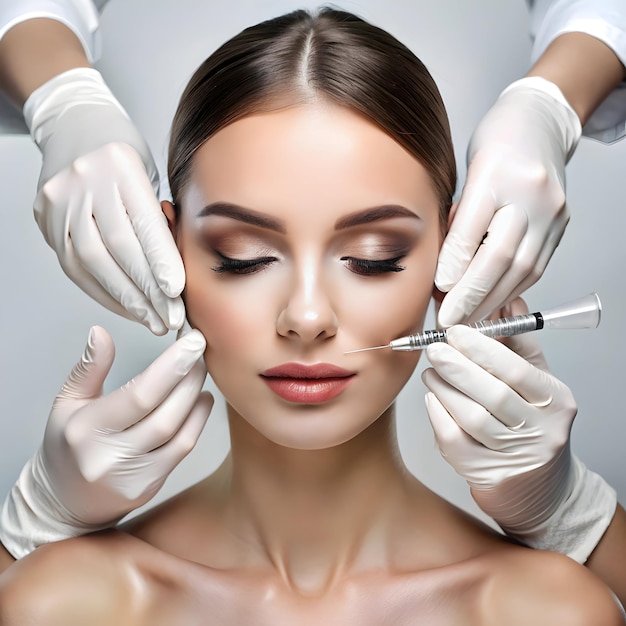In the world of skincare, where countless products and routines are widely promoted, building an effective skincare regimen can be daunting. Whether you’re a skincare beginner or someone looking to enhance your routine, expert advice from dermatologists can provide the clarity and guidance you need. For those seeking professional assistance, consulting with a dermatologist is an excellent step, and if you're in Dubai, visiting some of the Best Dermatologist in Dubai can set you on the right path to achieving radiant and healthy skin.
In this article, we’ll walk through the fundamental steps recommended by dermatologists to create a skincare routine that works for your unique skin type and concerns. Understanding the proper order and purpose of each product and step will help you maximize results and develop a routine that is effective, sustainable, and safe for your skin.
Step 1: Determine Your Skin Type
Before diving into specific products, it’s essential to identify your skin type. Dermatologists categorize skin into several types: oily, dry, combination, sensitive, and normal. Knowing your skin type will help you select products that meet your specific needs and avoid potential irritation or ineffective results.
- Oily Skin: Characterized by larger pores and a shiny appearance, oily skin often produces excess sebum. Dermatologists recommend looking for lightweight, oil-free products to prevent clogged pores.
- Dry Skin: If your skin often feels tight or flaky, it may be on the drier side. Opt for products that contain hydrating ingredients such as hyaluronic acid and ceramides to restore moisture.
- Combination Skin: Those with combination skin may experience oiliness in the T-zone (forehead, nose, and chin) and dryness on other areas. A balanced routine with products catering to both concerns is ideal.
- Sensitive Skin: Easily irritated, sensitive skin requires gentle products that are free of fragrances and harsh chemicals.
- Normal Skin: If you rarely experience oiliness, dryness, or sensitivity, you likely have normal skin and can use a wider range of products.
Step 2: Start with a Cleanser
Cleansing is the foundation of any skincare routine, helping to remove dirt, oil, and impurities that accumulate on the skin throughout the day. Dermatologists recommend choosing a cleanser that is gentle yet effective in cleaning the skin without stripping it of natural oils.
- Morning and Evening: Washing your face twice a day is generally recommended, especially at night to remove makeup and pollutants. For the morning, a mild cleanser can refresh the skin, while a more thorough cleanser may be used in the evening.
- Ingredients to Look For: If you have dry skin, seek hydrating cleansers with ingredients like glycerin or hyaluronic acid. For oily skin, foaming or gel cleansers with salicylic acid can help remove excess sebum.
Step 3: Apply a Toner (Optional)
Toners can be beneficial for specific skin types but are not a mandatory step in every skincare routine. Toners can help remove any remaining traces of dirt and provide a base layer of hydration for the skin.
- Oily and Acne-Prone Skin: Dermatologists often suggest toners with ingredients like salicylic acid or witch hazel, which help control excess oil and prevent breakouts.
- Dry and Sensitive Skin: Choose alcohol-free toners with soothing ingredients such as chamomile or rose water to avoid irritation.
Step 4: Use a Targeted Treatment or Serum
Serums and treatments are the powerhouse of any skincare routine, delivering concentrated active ingredients directly to the skin. Dermatologists often recommend incorporating a serum based on specific skin concerns, such as acne, aging, or hyperpigmentation.
- Vitamin C Serum: For brightening and protecting the skin against environmental damage, a vitamin C serum is ideal in the morning.
- Hyaluronic Acid Serum: If you need a hydration boost, hyaluronic acid can add moisture to the skin and is suitable for most skin types.
- Retinol: To address fine lines, wrinkles, and acne, retinol or retinoids can be applied at night, though they should be introduced slowly to avoid irritation.
Step 5: Don’t Forget Eye Cream
The skin around the eyes is delicate and prone to showing signs of aging earlier than other areas of the face. Dermatologists recommend using an eye cream that targets specific concerns, such as dark circles, puffiness, or fine lines.
- Application Tips: A small amount applied with a gentle tapping motion is sufficient. Look for creams with peptides or caffeine to help reduce puffiness and improve firmness.
Step 6: Moisturize According to Your Skin Type
Moisturizing is a crucial step for all skin types, even oily skin. Moisturizers help maintain the skin’s barrier, prevent dryness, and lock in the active ingredients from serums and treatments.
- For Oily Skin: Gel-based or lightweight moisturizers can help maintain hydration without clogging pores.
- For Dry Skin: A richer, cream-based moisturizer is ideal to provide lasting hydration.
- For Sensitive Skin: Opt for fragrance-free and hypoallergenic moisturizers that are gentle on the skin.
Step 7: Apply Sunscreen Every Morning
One of the most vital steps in a skincare routine is applying sunscreen with a high SPF rating every morning, regardless of the weather. Sun protection is essential for preventing premature aging, sunburn, and reducing the risk of skin cancer.
- Broad-Spectrum SPF: Dermatologists recommend using a broad-spectrum SPF of at least 30 to shield the skin from both UVA and UVB rays.
- Reapplication: Sunscreen should be reapplied every two hours if you are outdoors, or as needed after sweating or swimming.
Step 8: Adjust Your Routine Seasonally
As the seasons change, so might your skin’s needs. Dermatologists suggest adjusting your skincare routine based on environmental factors to ensure your skin remains balanced and protected.
- Winter: During colder months, your skin may become drier and need extra hydration. Incorporate a more hydrating moisturizer and avoid over-exfoliating.
- Summer: In warmer months, focus on oil control if your skin tends to be more oily. Lightweight moisturizers and increased SPF protection are also essential.
Step 9: Exfoliate Regularly, But Not Too Often
Exfoliating can help remove dead skin cells and reveal smoother skin underneath, but dermatologists caution against over-exfoliation, as it can lead to irritation and sensitivity.
- Physical vs. Chemical Exfoliants: Physical exfoliants, such as scrubs, may be too harsh for some skin types, especially sensitive skin. Chemical exfoliants, like glycolic or lactic acid, provide a gentler alternative.
- Frequency: Once or twice a week is generally sufficient for most skin types, though individuals with sensitive skin may only need to exfoliate once a week.
Step 10: Maintain Consistency and Patience
The key to seeing results in any skincare routine is consistency. While it can be tempting to try multiple products, dermatologists advise sticking with a basic routine and introducing new products gradually to avoid overwhelming the skin. Results from a good skincare routine often take time, with significant changes becoming visible within a few weeks to months.
When to See a Dermatologist
If you’re struggling with persistent skin issues or have concerns about your skin type and products, it’s always a good idea to consult with a dermatologist. Visiting one of the best dermatologists in Dubai can provide personalized insights and recommendations tailored to your skin’s needs. From diagnosing skin concerns to prescribing medical-grade products, a dermatologist can guide you toward a skincare regimen that will deliver optimal results and address any specific challenges you may be facing.
Final Thoughts
Building a skincare routine might seem complex, but with guidance from dermatologists, it becomes simpler and more effective. Start with the essentials, select products that suit your skin type, and always prioritize sun protection. Remember, a good skincare routine is an investment in your skin’s long-term health and appearance. Consistency, patience, and professional guidance are key to achieving the clear, glowing skin you desire.






Comments